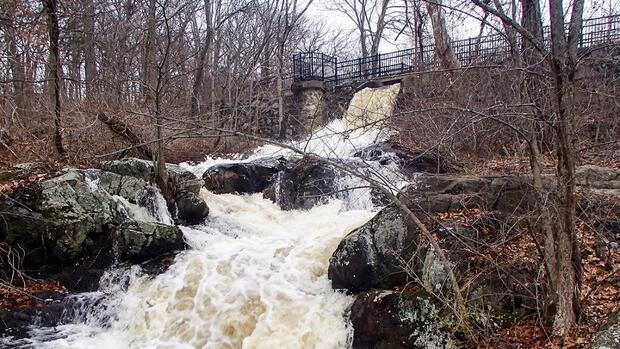DCR Decarbonization Efforts
Decarbonization is a term that usually refers to a group of strategies aimed at slowing climate change. This occurs through the transition from or reduction of onsite combustion of fossil fuels in buildings or vehicles. Instead of using gas, oil, and propane, buildings and vehicles transition to low- or zero-carbon fuels, such as electricity, that are sourced from renewable resources.
The Decarbonization Initiatives Online map is an interactive tool designed to showcase our ongoing efforts to reduce greenhouse gas emissions. Efforts include installing electric vehicle charging stations, solar panels, managed pollinator habitats, modern wood heat and green buildings. These types of action are governed by State Executive Order 594: Decarbonizing and Minimizing Environmental Impacts of State Government.
Climate Adaptation
Resilience or Climate Adaptation refers to the ability of an asset to accommodate or recover from the impacts of climate impacts or hazards. The studies developed by the DCR Office of Climate Resilience are shared below. These materials aim to provide information and tools to adapt to climate hazards.
Asset Specific Climate Vulnerability Assessments
DCR Statewide Climate Change Vulnerability Assessment
The Massachusetts Department of Conservation and Recreation (DCR) completed a Climate Change Vulnerability Assessment to better understand how climate change may affect the natural, cultural, and recreational resources it manages. Because DCR oversees many properties, the assessment helps identify which sites are most vulnerable and where to focus future planning, though it does not provide site-specific solutions. The assessment uses established methods and data to support long-term planning, improve resilience, and guide decisions about asset management and climate preparedness. You can learn more by reviewing the CCVA Accessibility report.
DCR Climate Adaptation Goals
In March of 2025, DCR adopted Climate Adaptation Goals. These goals represent a whole-agency approach to answer the question: In the face of increased climate change impacts, what can DCR do differently, do more, or do more consistently across the Commonwealth? Learn about DCR's Climate Adaptation Goals
For information on Massachusetts climate projections, data, visit ResilentMass.
